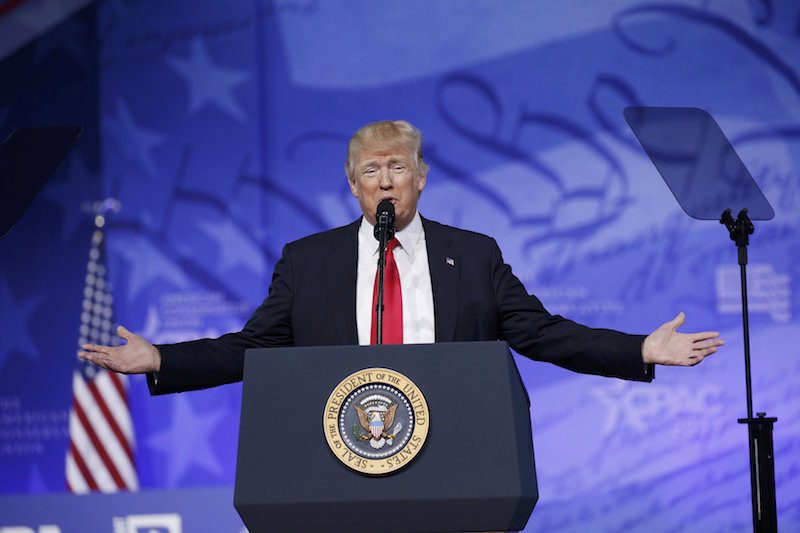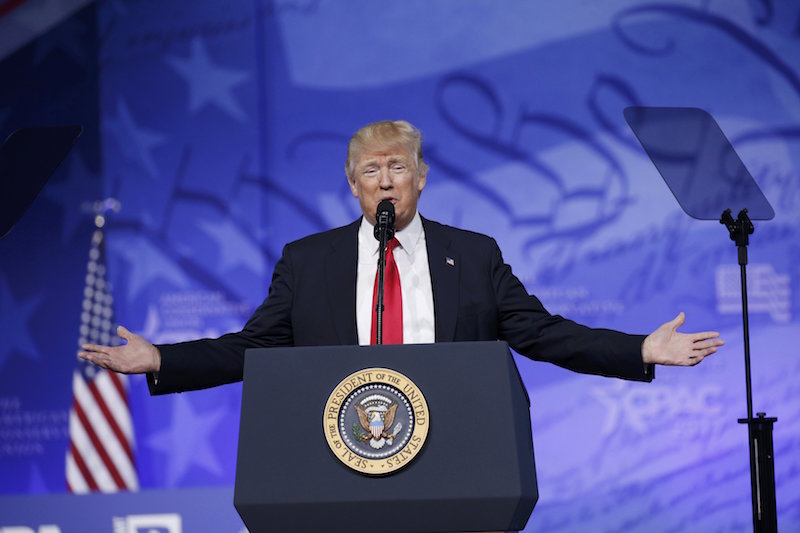In a dovetailing of strongman rhetoric across continents, Prime Minister Hun Sen offered an unprompted explanation on Monday of U.S. President Donald Trump’s recent attacks on the news media.
“Donald Trump sees that these groups cause chaos. That’s why he doesn’t allow them to access [the White House]…. Some [news outlets] only talk about human rights, but don’t talk about peace and stability,” Mr. Hun Sen said during a speech in Phnom Penh about tourism.

By speaking of peace and stability, Mr. Hun Sen was alluding to his oft-repeated refrain that he had brought Cambodia out of the wars of the 1970s and 1980s, and that maintaining order was his first priority.
He expressed sympathy for the plight of the U.S. and a president now sparring with news media over unflattering coverage, and who on Friday barred outlets such as The New York Times, the BBC and CNN from attending a press briefing. In Cambodia, tussles between the government and the few independent media outlets are nothing new.
“Now it’s the turn of the U.S. itself as CNN and other [media] are no longer allowed to enter the White House,” he said. “Will you accuse Donald Trump of being a dictator?”
Mr. Hun Sen—frequently the butt of U.S. criticism over his government’s alleged human rights abuses—has reveled in many Americans’ panic-stricken response to Mr. Trump’s election and what some see as the new president’s dictatorial style.
The premier’s remarks on Monday on National Clean City Day 2017 came after a Facebook post by Council of Ministers spokesman Phay Siphan over the weekend threatened to take unspecified measures against U.S.-funded Voice of America and Radio Free Asia, as well as The Voice of Democracy, which is run by the Cambodian Center for Independent Media.
Reached on Monday, Mr. Siphan repeated his routine claims that the outlets “incite the population against the government” and serve as proxies for unspecified foreign agents.
“They are part of the opposition party,” the spokesman said, echoing a common criticism of the media made by autocrats around the world, and one that has been recently adopted by Mr. Trump’s administration.
He threatened to “shut [them] down and kick them out” as well as imprison Cambodian reporters who worked for outlets the government deemed unprofessional. In the same breath, the spokesman said he merely meant the statements as a “warning” and had “no intention to send anyone anywhere.”
Mr. Siphan said that Mr. Hun Sen was watching not just Mr. Trump, but regional leaders like Philippine President Rodrigo Duterte and Thai Prime Minister Prayut Chan-ocha, both of whom have regularly voiced contempt for the fourth estate and constitute an advancing vanguard against press freedom.
“It’s a turning point…against the media,” Mr. Siphan said.
Lee Morgenbesser, a scholar at Australia’s Griffith University, said the ruling party was likely looking to the Trump administration for talking points not policy.
“At present, many dictatorships (including Egypt, Turkey and Zimbabwe) are using the Trump administration as a rhetorical justification for all sorts of illiberal policies,” he wrote.
“Given that Trump is a great gift to dictators everywhere, Hun Sen is merely taking advantage of the situation before him. The next four years are going to shape Cambodia like none other.”




